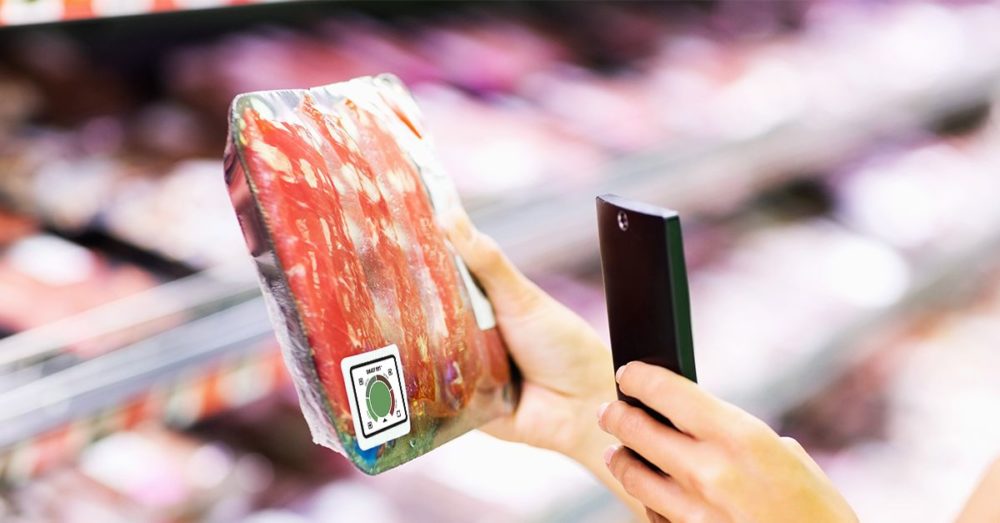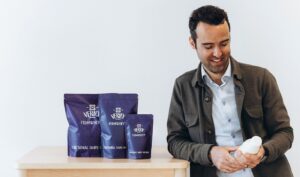Evigence, a company that produces sensors and couples them with data analytics to monitor perishable food freshness in real time, has secured $18 million in a Series B round.
- The round was led by Chicago-based foodtech and beverage investor Cleveland Avenue, with participation from previous investors Planet Capital and Landa Ventures.
- The funding follows a $10 million Series A raise back in 2018 from its previous investors along with Food Retail Ventures, according to Crunchbase.
- With the new financing, Evigence will develop commercial deployments and partnerships in the US and Europe. It will also advance the startup’s digital platform and data collection and analytics services to create a seamless process for food service providers and retailers to collect their data, according to the company.
- A recent and noteworthy customer is Marley Spoon By Martha Stewart, which is using Evigence technology to ensure the freshness of its meal kits and enable consumers to track it too.
Why it matters
It probably comes as no surprise that at least one-third of all food produced is wasted, with a significant portion of that happening at home.
A misunderstanding of the sell-by dates or best-before dates that are stamped on goods to give the consumer an idea of an item’s safety period for consumption, causes 20% of food loss at home, according to the Food & Drug Administration. That’s about $32 billion each year in the US alone.
What’s more, those dates do not guarantee actual food safety, because the temperature and storage conditions of those foods are not constantly monitored and controlled.
Temperature can render food safe or unsafe. According to the Food Safety and Inspection Service, bacteria which are some of the fastest reproducing organisms can double in as little as 20 minutes in temperatures ranging 40 °F and 140 °F.
“The issue is that refrigerated products are usually very sensitive to small changes, even small changes in temperature. For example, a one degree Celsius change in average temperature for bagged lettuce is equivalent to 10% of shelf life,” says Yoav Levy, co-founder and CEO of Evigence. With the current stamp system, there’s no way a consumer can tell whether the food’s required storage temperatures were met and what real condition the food is in at the time of purchase.
So far, he claims that tens of millions of Evigence sensors have been used in food and beverage in different markets. According to the company, its customers have recorded a 20% shelf life extension, a 5% increase in sell-through, and a 33% reduction in waste.
The Israel-based company, whose commercial headquarters are now in New Jersey, first started out serving the health industry by deploying sensors to monitor the cold chain for pharmaceutical products. According to Levy, the company was one of two that met WHO requirements on vaccine vial monitoring and how sensors used in this manner should work.
“Once we developed that, we basically pivoted to the food world, understanding that there is a huge issue of food waste, which is a result of using a broken date code system, he tells AFN, adding that some countries are moving away from using them, including the UK.
How it works
To solve these issues, Evigence has developed what it calls a “Freshness Management System” that can be applied at an individual unit level — be it a single food product or, as you’ll read below, a group of products as they’re being packaged. Thereafter, the sensors can be digitally scanned throughout the supply chain but are also eye readable. This enables anyone to monitor the aggregate temperature the product absorbs over time from when it was packed giving an indication of its freshness level.
Evigence users, usually food service providers, retailers, and food brands can use these data to gauge the remaining shelf life of that specific product and ultimately use it to optimize the use of that product.
Evigence’s Freshness Management System is also accessible to consumers as proved by its recent partnership with US meal kit delivery service Marley Spoon By Martha Stewart, where the sensors are applied on postcards in the meal kits. This will provide a freshness guarantee to its consumers and achieve 100% compliance with Marley Spoon’s food safety standards, according to Evigence.
“We’re seeing very high engagement rates from consumers. They’re actually doing something because they’re scanning the packages with their phones and the big indication is how important knowing something is fresh for the end consumer,” Levy notes.
What they’re saying
“There’s excitement about the technology itself and now we’re showing initial traction in different markets and different segments. I think investors are going pick up on this more and more. That’s part of the reason we managed to raise this funding round in less than optimal conditions, as you know given the markets, ” Levy told AFN.
“If we, together with our partners, are able to make a dent in the ecosystem and create a situation where users are managing their refrigerators and managing their products based on a smart freshness system that would reduce the food wasted at home, in a store and in production, then that would be a huge win for us and for the environment.”
“Evigence’s technology enables the quantification of freshness and comes at a pivotal moment for our food system,” says Keith Kravcik, chief financial and investment officer of Cleveland Avenue.
“By adding transparency to food supply chains, we can reduce waste and inefficiencies, providing significant cost savings for foodservice companies, retailers, and food brands.”





